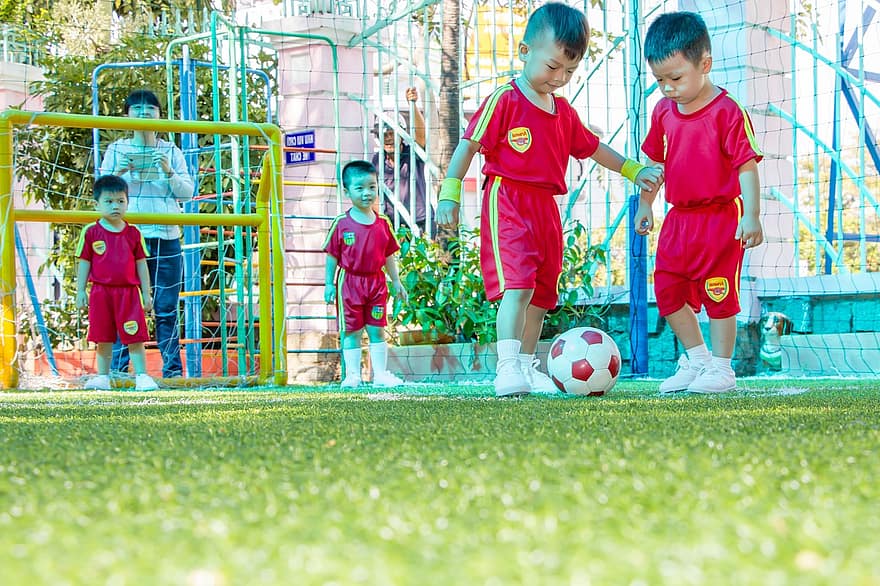Every parent has had to schedule them – the required general physical that is necessary for many schools, sports, and camp events. Physical checkups are often required for enrolling in a new school before a child can play any sport, and most likely for any summer camp that your child may attend.
Your pediatrician is often your first phone call for getting this box checked, but if there are no convenient appointments for you, you can probably turn to your local urgent care center to get prompt attention. As Dr. Gregory Blomquist, Chief Medical Officer at CommunityMed Family Urgent Care, in Texas, reminds us: “Most urgent care centers are open evenings and weekends. They welcome walk-ins, usually with no wait times.”
What’s involved in a school, sports, or camp physical?
In a school physical, the health care provider will not only check your child’s health and family history, he or she will also check your child’s height, weight, blood pressure, vision, heart, lungs, and other vital systems. He or she will also check to make sure that all needed vaccinations are current. You can think of school physicals as preventive care visits that monitor your child’s growth and development. This kind of physical is considered a supplement to regular pediatrician attention, not a substitute for regular medical examination. The annual checkup that your child gets from his or her pediatrician every year is still necessary.
A sports physical exam is scheduled before a student can play that sport. This kind of physical is different from a school physical in that it only covers issues related to that specific sport and focuses more on injury prevention. A sports physical usually involves taking a health history and performing a physical examination. Sports physicals should be scheduled at least six to eight weeks before the sports season starts – this gives the practitioner time to treat any condition or refer you to a specialist if needed before practice starts. All of this will need to be done before the child is cleared to play the sport.
Sports physicals are usually required for students aged 12 to 18 who want to participate in any sport at the middle school or high school level. The American Academy of Pediatrics encourages sports for children, with the proviso that sports physicals be conducted regularly – ideally once a year as long as the child engages in the sport. AAP also recommends swimming lessons for your kids from as early an age as possible (even one year old!), to open their world to water sports and of course, safety.
The physicals that are required before a child can play a sport typically involve an eye exam, discussion of your child’s current or past conditions, allergies, previous injuries, accidents, or medications. If your child falls into a high-risk category for any reason, call the urgent care to see if it can sign off on high-risk physicals – if not, you might have to visit the pediatrician after all. This includes children who have been previously diagnosed with asthma, severe or life-threatening allergies, heart/lung problems, diabetes, and so on.
Camp physicals are also a little bit different. They typically screen for any preexisting medical conditions that might factor in when your child is participating in the typical camp activities. They will want to make sure that your child is healthy enough to be exposed to allergens that might trigger asthma or other allergic reactions. This is especially important if your child has any known life-threatening allergies such as to bee stings, peanuts, gluten, etc. This way the health care provider can preemptively recommend any preventative measures, treatments, or medications before signing off on the camp physical form.
Another good reason to schedule a school, sports, or camp physical is to make sure that your child has the opportunity to speak with a health care professional regarding their mental health as well. With schooling happening during a lengthy pandemic and many students coping with remote learning for the first time, checking in with a health care provider can also help practitioners identify any signs of depression, anxiety, stress, eating disorder, or any other red flag that may need to be addressed.
Homeschooling or distance learning may be the future of education, which means that fewer children will be screened with routine physicals by health care professionals. Regular physical checkups should still be scheduled once a year for every child so that they can stay healthy and happy.
The cost of school, sports, and camp physicals are nominal, from around $50 in most areas. Be sure to bring your child’s current vaccination records so the health care provider can include that information in their paperwork. Also bring the child’s eyeglasses or contacts, if applicable, for the eye exam. Good medical attention, from the routine to the extraordinary, will ensure that your child’s health remains the priceless asset that it is.

